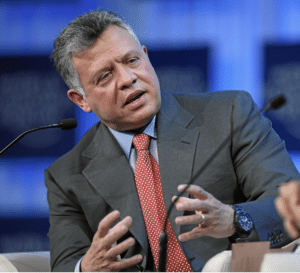On 31 December, a Jordanian criminal court reached a ruling on a case against the Jordanian Teacher’s Syndicate. The court decided to permanently dissolve the syndicate and sentence all its council members to 1 year in prison on charges of financial abuse and incitement, amongst others.
A year and a half of clashes
The court’s decision is seen as the latest action in a year and a half-long dispute between the Syndicate and the Jordanian government. In September of 2019, Jordanian public school teachers went on a highly-publicised, month-long strike that halted education in most of the kingdom’s schools, demanding a 50% increase in wages they deemed unliveable. With public support behind them, the teachers reached a compromise with the government where they were promised a 35-75% rise in wages based on experience. The deal was celebrated by teachers and the public and helped calm relations with the government.
The dispute was reignited in April of 2020, when the government announced a freeze on all public sector pay raises due to the Covid-19 pandemic in Jordan. This angered the teachers, who saw the government as taking advantage of the pandemic, leading to another escalation in tensions between the syndicate and the government. Before teachers could begin demonstrating against this decision, the attorney general ordered the suspension of the syndicate for 2 years and the arrest of council members on the charges mentioned above. This attack against the syndicate was followed by a number of repressive measures such as a gag order preventing any news coverage of the events. The government also utilised the current state of emergency to disperse solidarity protests and arrest their leaders. In the subsequent months, many activist teachers would be forced into early retirement. These actions were condemned by the public, as well as several international organisations.
Public discontent
Shortly after the ruling was issued, the syndicate’s lawyer, Bassam Fraihat, announced that the council members have been granted bail and are going to appeal the case. The court’s decision was immediately met with public outrage against the government on various social media channels. Jordanian political figures accused the decision of being politically motivated and undemocratic. There was little response from the government except claims that the decision was made by the constitutionally independent judiciary with no interference from the executive branch.
In the days following the decisions, teachers and their supporters, joined by a number of sympathetic MPs, staged sit-ins in front of parliament, demanding a reversal of the decision.
Worsening political rights under Covid-19
These latest events follow a trend of worsening political rights in Jordan under the conditions of the Covid-19 pandemic, particularly when it comes to freedom of expression. Then-Prime Minister Razzaz assured Jordanians that the state of emergency would not be used to limit citizens’ rights, yet many analysts note an increase in the number of journalists arrested since the imposition. Human Rights Watch reported that 8 out of the 8 journalists they interviewed in August 2020 expressed unprecedented levels of intimidation and censorship by government organs in the last few years.
Sources: Aljazeera 1/ Aljazeera 2 / AA / Roya News / HRW



